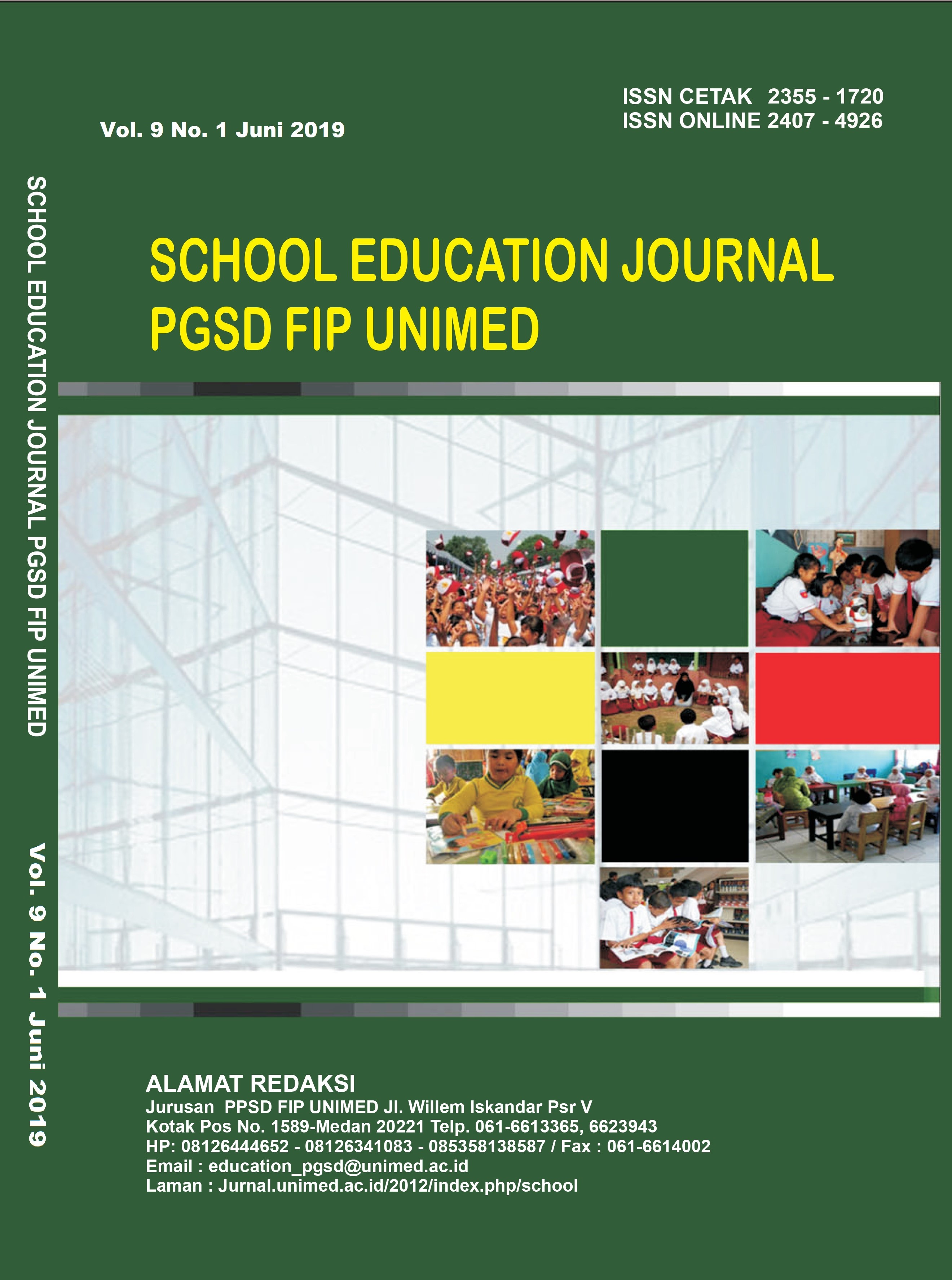KEEFEKTIFAN MODEL THINK TALK WRITE BAGI PENINGKATAN KETERAMPILAN MENULIS PUISI SISWA KELAS V DI SD NEGERI GUWO 03 PATI
DOI:
https://doi.org/10.24114/sejpgsd.v9i1.13701Abstract
Writing is a language skill that is used to communicate indirectly, not face to face with other people. Learning is a process carried out by students to achieve learning goals. Learning is an effort that is done by someone to make other people experience changes in behavior, namely from negative behavior to positive. Learning writing skills has various forms. One of them is poetry writing skills. Writing poetry is an expression that is intentionally stated by the poet in concretizing the flavor deposits that are in him. In connection with learning to write poetry, based on the results of observations made on fifth grade students of SD Negeri Guwo 03 Pati in the 2018/2019 school year with a KKM score of 75 there are various difficulties and students get an average score under the KKM which is 65. Seeing some of these constraints, The author conducted this study aims to offer an alternative solution to the use of Think Talk Write models so that indicators in learning activities can be achieved optimally. With the Think Talk Write model students are expected to be interested in participating in learning and easily capturing learning so that students can write imaginative poetry and the value can be above the KKM which is 75. Keywords: Writing Skills, Think Talk Write Models, Learning Outcomes.Downloads
Published
Issue
Section
License
Authors whose manuscripts are approved are approved as follows:
The publication rights for all journal manuscript materials published/published on the SEJ (School Education Journal) E-Journal site are held by the editorial board with the author's knowledge (moral rights remain with the manuscript authors).
The formal legal requirements for accessing this electronic digital journal article are subject to the terms of the Creative Commons Attribution-ShareAlike (CC BY) license, which means that E-Journal SEJ (School Education Journal) has the right to store, transfer media/format, manage in the form of a database, maintain, and publish articles without asking permission from the author as long as the author's name remains as the copyright owner.
Manuscripts published/published electronically are open access for educational, research, and library purposes.

